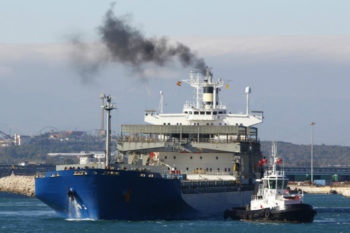
By Jite Erabie
The UK government has committed to help fund innovative technologies and fuels to reduce maritime emissions, ultimately helping create a zero-emissions sector.
The government, in partnership with industry, has committed to spending over GBP 6 million (USD 7.8 million) on funding trials of innovative energy saving devices, such as state of the art propellers, on board waste heat recovery and rotor sails that use wind power to cut fuel consumption.
In addition to funding trials, the government is also providing technical backing through the Maritime and Coastguard Agency for some projects, including work in Scotland to prove the use of hydrogen fuel cells for ferries in the UK, as well as Caledonian MacBrayne Ferries’ ongoing work to deliver vessels such as hybrids, and their longer term efforts to prove the use of propulsion and fuels for the next generation of ferries.
“The UK is playing a leading role in implementing binding energy efficiency targets for shipping, which we helped secure global agreement on in 2011. By 2025, the majority of new ships will be expected to be 30% more efficient than current designs,” the government said.
Maritime transport emits around 1,000 million tonnes of CO₂ annually worldwide, and is responsible for about 2.5% of global greenhouse gas emissions. Studies suggest that, if emissions from international shipping are not addressed, they will account for almost a fifth (17%) of global emissions by 2050, the government said.
Additionally, the government has been working with industry to develop international regulations to support liquid natural gas and other alternative fuels. Vessels fuelled with liquid natural gas are regularly refuelling in the UK at ports including Teesport, Southampton and Immingham.